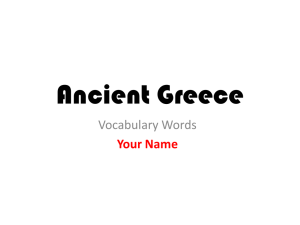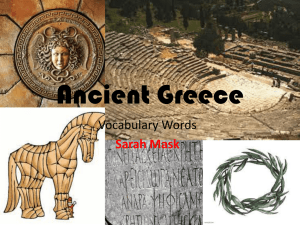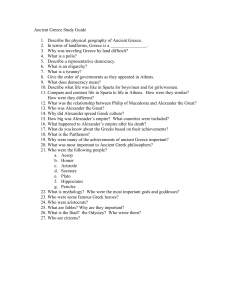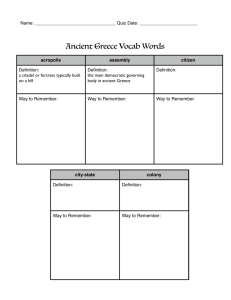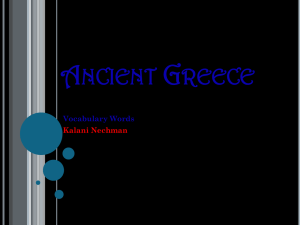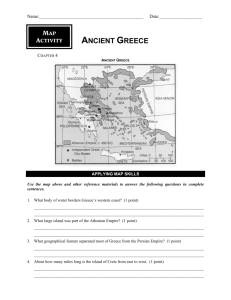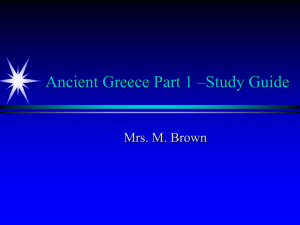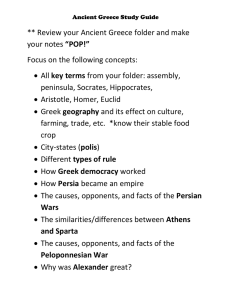5th Grade History Study Guide
advertisement
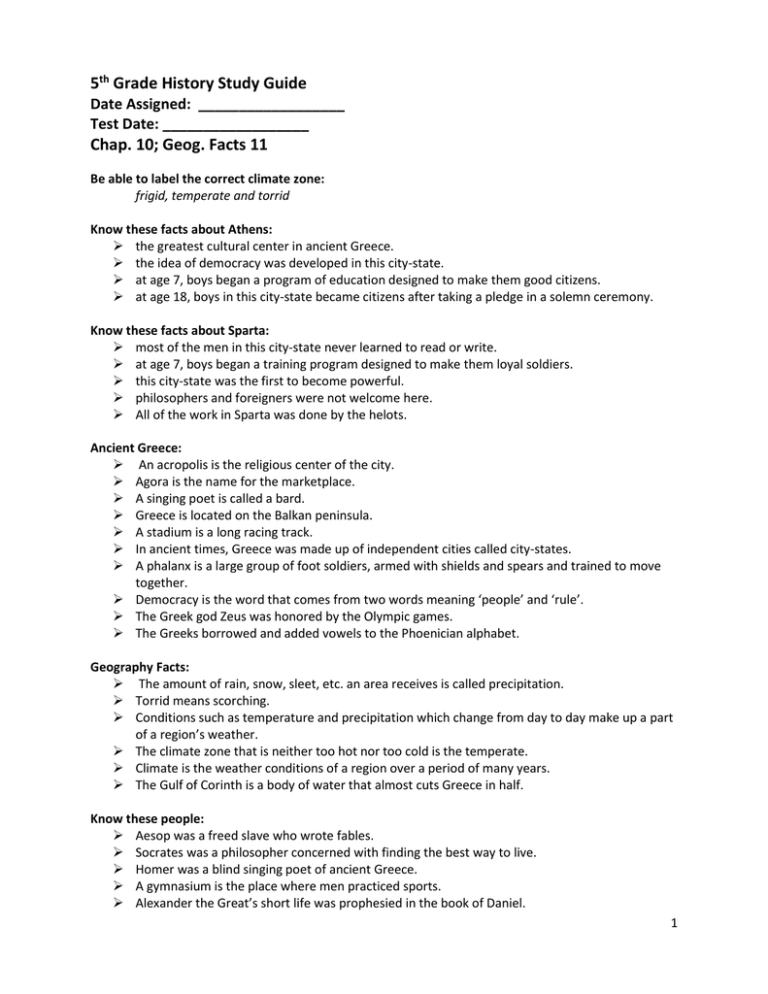
5th Grade History Study Guide Date Assigned: __________________ Test Date: __________________ Chap. 10; Geog. Facts 11 Be able to label the correct climate zone: frigid, temperate and torrid Know these facts about Athens: the greatest cultural center in ancient Greece. the idea of democracy was developed in this city-state. at age 7, boys began a program of education designed to make them good citizens. at age 18, boys in this city-state became citizens after taking a pledge in a solemn ceremony. Know these facts about Sparta: most of the men in this city-state never learned to read or write. at age 7, boys began a training program designed to make them loyal soldiers. this city-state was the first to become powerful. philosophers and foreigners were not welcome here. All of the work in Sparta was done by the helots. Ancient Greece: An acropolis is the religious center of the city. Agora is the name for the marketplace. A singing poet is called a bard. Greece is located on the Balkan peninsula. A stadium is a long racing track. In ancient times, Greece was made up of independent cities called city-states. A phalanx is a large group of foot soldiers, armed with shields and spears and trained to move together. Democracy is the word that comes from two words meaning ‘people’ and ‘rule’. The Greek god Zeus was honored by the Olympic games. The Greeks borrowed and added vowels to the Phoenician alphabet. Geography Facts: The amount of rain, snow, sleet, etc. an area receives is called precipitation. Torrid means scorching. Conditions such as temperature and precipitation which change from day to day make up a part of a region’s weather. The climate zone that is neither too hot nor too cold is the temperate. Climate is the weather conditions of a region over a period of many years. The Gulf of Corinth is a body of water that almost cuts Greece in half. Know these people: Aesop was a freed slave who wrote fables. Socrates was a philosopher concerned with finding the best way to live. Homer was a blind singing poet of ancient Greece. A gymnasium is the place where men practiced sports. Alexander the Great’s short life was prophesied in the book of Daniel. 1 Alexander the Great’s empire extended as far east as India. Alexander the Great built 16 cities and named each of them Alexandria, after himself. Most of Greece was conquered by Alexander’s father Philip II. Discussion Question: During the Hellenistic Age, which language was used in most of the civilized world? Why was the usage of this language especially important. ______________________________________________________________________________ ______________________________________________________________________________ ______________________________________________________________________________ 2
